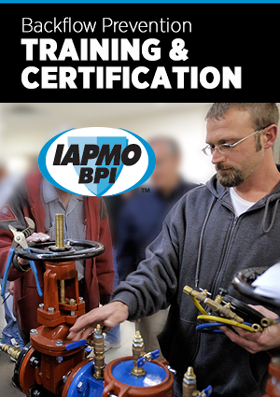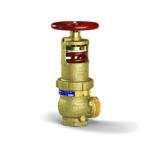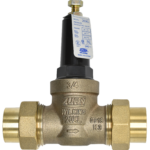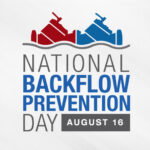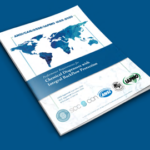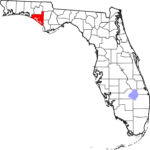I have been working in the plumbing industry since 1975, when I started working in the summer vacation from high school with my uncles plumbing company. I was attending the Lackawanna Vo-Technical school enrolled in the Plumbing Class and my uncle offered me a job. It was hard work, installing water lines and sewer services into new homes. They say that hard work builds character — if that is true I built a lot of character that summer. To me it was not just a job, but it was something I have grown to love over that summer and in the many years that followed. There was a certain satisfaction in building things, in looking back at the end of each day on what we had accomplished. I finished high school and entered the apprenticeship program at UA Plumber’s Local 524 in Scranton, Pa. Over the next five years I attended classes in the evening and worked in the field during the day on projects ranging from single family housing to large commercial projects. It became clear to me that no matter how long I worked in this industry, I would be learning new procedures, new joining methods, keeping abreast of additional developments in product technologies, and that this educational process would continue throughout my career.
Along the way I realized the importance of training in the plumbing and mechanical industry. I attended every seminar I could and worked to pass the information on to the people I worked with. I became an apprentice and journeyman instructor in my home local union training center and attended the United Association’s Instructor Training Program and became a certified instructor. Working with other individuals we set up a training program for backflow tester certification and cross-connection control in north eastern Pennsylvania, the first of its kind in the region. We worked hard to raise awareness of cross-connection issues with utilities, contractors, inspectors, and consumers. I became a member of a number of organizations working on water and plumbing issues, including the American Backflow Prevention Association (ABPA) and the American Society of Sanitary Engineering (ASSE). I attended industry meetings with both organizations and met many people who shared a passion for education and awareness to protect the public health.
Both ASSE and ABPA along with other groups have been working hard to ensure that certification and training programs are expanded and that the necessary educational programs for both the public and the industry are made readily available. In 2012 I began working full time with the IAPMO Backflow Prevention Institute doing cross-connection training in many areas of the United States. I also began working to expand this training to areas of the country where we had not offered training and education in the past, and areas where the certification the IAPMO Backflow Prevention Institute uses had not yet been adopted or approved. This is where I began to get a better education in the politics of the cross-connection industry.
Many jurisdictions we approached asked us for information on our programs and did a thorough review of our certification classes and our IAPMO training materials. Many areas had follow up questions and asked for additional information on the training, or for comparisons with the certification programs they currently accepted. Some jurisdictions have set up a policy that does not allow for the approval of third party certifications and instead insist that individuals complete a program set up using a state or county certification program administered by certain governmental agencies. While I may question this approach, I can completely understand the mindset and reasoning behind it.
In other areas however some policies and review processes, or lack of review processes seem to deny all logic and reason. This is where at times I question the motives or reasonability of the policies and in some cases the individuals making these decisions. I am not fond of monopolies in general or in the cross-connection area. We have also been told over the past few years that our program is unacceptable because of the following reasons: our training course was forty hours and the jurisdiction only requires thirty hours; the final exam is one hundred questions and the jurisdiction only requires fifty; or the jurisdiction does not allow for testing of pressure or spill resistant vacuum breakers and our practical exam requires their testing. It makes no sense to me that our classes are rejected because our requirements are more stringent than the minimum requirements of the existing programs.
The learning process concerning the politics of backflow programs is one I have not enjoyed being schooled in. Conflict of interests seem to exist within the decision making process in many areas and jurisdictions. Mistrust and a lack of understanding between the industry stakeholders can also be a large issue. We all start off with the best of intentions and with the same goals in mind. Protecting the potable water supply and educating the industry and the general public. We need to continue down that road. Programs that meet sensible requirements should be acceptable in every jurisdiction. The Authority Having Jurisdictions should be required to list the timelines, application process, and requirements for program approvals. The decision makers should be known to the applicants and any conflicts of interest should be disclosed, or the individuals having the conflicts should recuse themselves from the approval process. It’s time to end the monopolies which stifle innovation and hold the industry back. Education is the key to ensuring we have qualified individuals doing the important work needed to protect the water supply and protect the health of the nation.
About the Author |
|
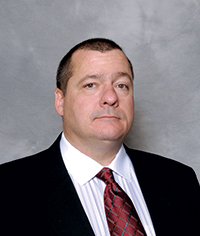 |
Sean is a 40 year member of the United Association Local 524 Scranton Pa. He has worked in all phases of the plumbing and mechanical industry and is a licensed master plumber. Sean is a Past President of the American Society of Sanitary Engineering. Sean is also the member of the ASSE Cross-Connection Control, Technical Committee. Sean is employed by IAPMO as the Vice President of Operations for the IAPMO Backflow Prevention Institute. |






 27 Mar 2018
27 Mar 2018
 Posted by Sean Cleary
Posted by Sean Cleary 





